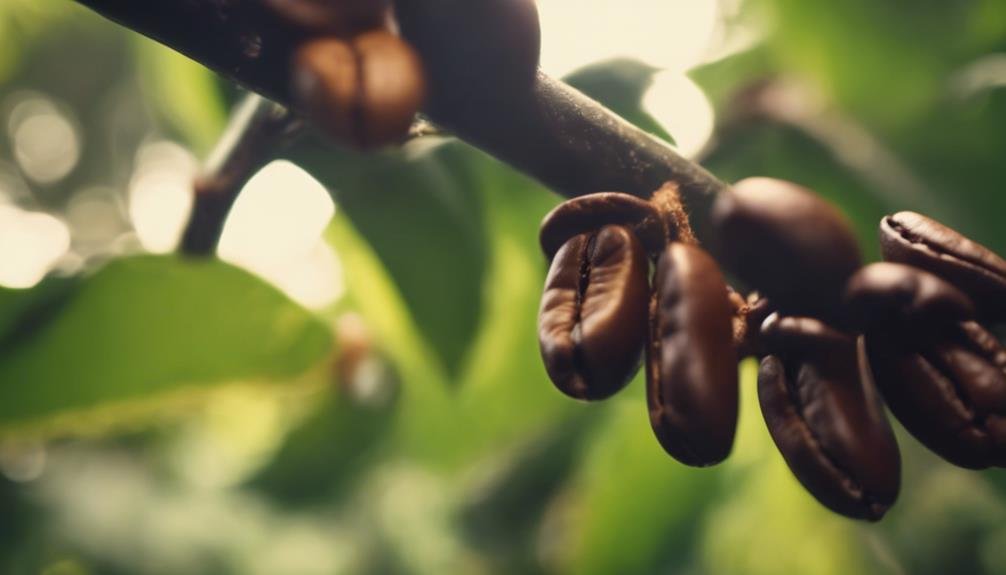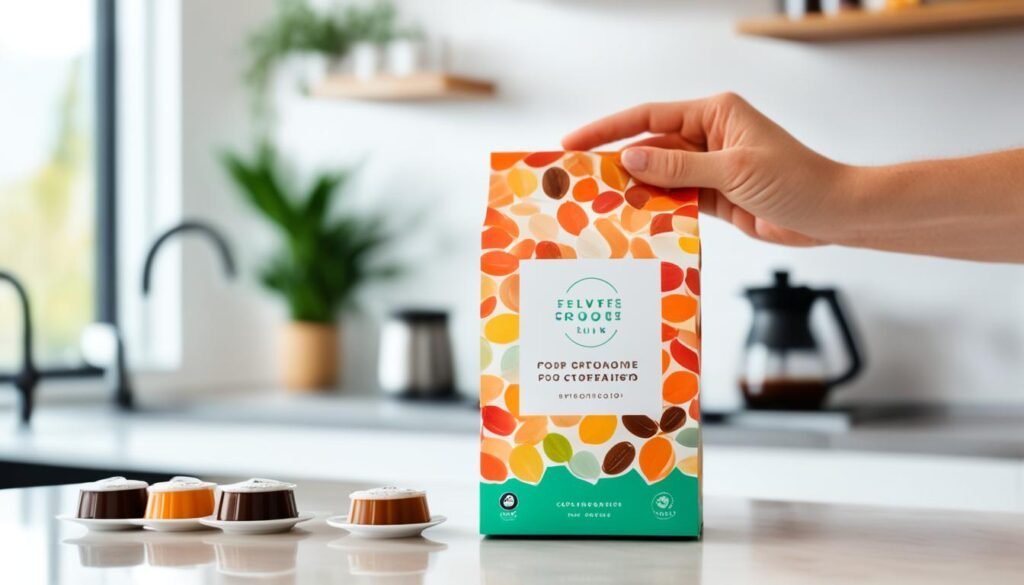Decaf coffee is not entirely caffeine-free, as it surprisingly contains small amounts of caffeine. A typical cup of decaf coffee can have anywhere from 0 to 7 milligrams of caffeine. The exact caffeine content varies based on factors like the decaffeination process and the coffee brand.
For example, a 16-ounce serving of decaf might contain around 9.4 milligrams of caffeine. This means that you would need to drink 5-10 cups of decaf to match the caffeine in one to two cups of regular coffee.
Being aware of these differences allows individuals to make informed choices about their caffeine consumption while still enjoying the benefits of decaf coffee.
Delve deeper into the world of decaf to uncover more interesting details.
Caffeine Content

Decaf coffee, despite its name, isn't completely caffeine-free, containing around 0 to 7 mg of caffeine per cup. On average, a 16-ounce serving of decaf coffee has about 9.4 mg of caffeine, significantly less than regular coffee.
This makes decaf a great option for those who are sensitive to caffeine. The varying caffeine levels in decaf coffee can be attributed to different decaffeination methods and coffee brands.
For example, drinking 5-10 cups of decaf is comparable to consuming the caffeine content of just 1-2 cups of regular coffee. Understanding these differences helps individuals make informed decisions, allowing them to enjoy their coffee ritual without experiencing the full effects of caffeine.
Health Benefits
Additionally, decaf coffee offers a range of health benefits, especially for those sensitive to caffeine or dealing with conditions like anxiety, headaches, or heartburn. By reducing caffeine intake, decaf coffee can help alleviate symptoms related to these issues, promoting overall well-being.
It's also a great option for pregnant women who need to limit their caffeine intake. Decaf coffee is gentler on the stomach as it is lower in acidity, making it suitable for individuals with digestive sensitivities. It allows coffee lovers to enjoy the comforting routine of coffee consumption without the potential negative effects of caffeine.
Ultimately, decaf coffee is an inclusive choice that brings together coffee enthusiasts with different health needs, fostering a sense of community among diverse drinkers.
Taste and Flavor

Decaf coffee often has a different taste and flavor compared to regular coffee due to the decaffeination processes involved. These processes can sometimes remove certain flavor compounds, leading to a less robust and complex coffee compared to its caffeinated version.
However, advancements in decaffeination techniques have greatly improved in preserving the essential flavors. Modern decaf coffee now maintains much of the aromatic and taste qualities that coffee lovers appreciate.
While it may not fully replicate the full-bodied experience of regular coffee, decaf options still offer a comforting and enjoyable alternative for those looking to cut down on caffeine without compromising on the essence of their favorite brew.
Decaffeination Methods
There are several methods used to decaffeinate coffee, each with its own way of removing caffeine while preserving the natural flavors of the beans.
The Swiss Water Process is known for using water to extract caffeine, achieving a high decaffeination rate without the use of chemicals.
Solvent-based methods, like those using methylene chloride or ethyl acetate, dissolve caffeine through a chemical process.
The carbon dioxide method involves using pressurized CO2 to selectively remove caffeine while keeping the flavor compounds intact.
Each decaffeination method has its unique benefits and influences the final taste, allowing coffee lovers to enjoy decaf without sacrificing the rich, complex flavors they love.
Understanding these processes can deepen one's connection to the coffee community and its diverse offerings.
Bean Varieties and Ethics

When choosing decaf coffee, it's important to consider the type of beans used and the ethical practices involved in their production. Different beans like Arabica and Robusta offer unique flavors and caffeine levels.
Specialty decaf options often feature single-origin beans, providing distinctive taste experiences. Supporting ethical practices is crucial; opting for fair trade and organic decaf coffee ensures fair compensation for farmers and promotes environmentally sustainable methods.
Conclusion
Decaf coffee isn't completely free of caffeine, but it does offer a lower caffeine content that can be gentler on those sensitive to it. This option holds notable health benefits, particularly for individuals with certain health conditions or for pregnant women.
The decaffeination process maintains the coffee's flavor profile, and selecting high-quality beans while following ethical practices enhances the overall experience.
It's hard to ignore the nuanced benefits of decaf coffee when seeking a healthier alternative to regular caffeinated options.












